La Fiesta del Fuero de Sepúlveda: Dead Kings, Living Clowns and Spain's Political Regression
At Sepúlveda's Fiesta del Fuero, locals celebrate a 1,000-year charter that gave land and rights. Medieval governance beats modern corruption.
Hungry Culture
7/30/2025

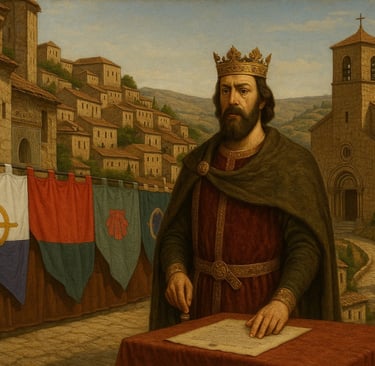
My post content
If you’ve ever wanted to watch a medieval document come back to life while nibbling on empanadas and listening to brutal folk metal, Sepúlveda is the place.
On the 19th of July, I found myself in the Castillan village of Sepulveda, surrounded by men and women dressed in cloaks and cowls, their children weilding plastic swords as if they were off to reclaim the Holy Land.
The village is thrown back to 1076 every July for the annual Fiesta del Fuero. Folk music fills the air, and the Medieval Market sells everything from sausages and baked goods to herbal teas and spices that claim to straighten out your liver and cleanse your soul.
The festival's entertainment added to the historical vibe. On one side of the village, birds of prey, like falcons and owls, were on display. They flew above the crowd, looking slightly annoyed to be part of the show. Meanwhile, Wyrdamur, the festival's brutal folk band, marched through the streets, pounding drums, twirling flags, and playing electric violins.
As the sun went down, a small parade of locals carried torches to light the lanterns lining the streets of the village, preparing for the main event. Onlookers gathered around the main stage to listen to the formal reading of the Fuero de Sepúlveda, a legal document from 1076 that granted rights, responsibilities, and land to settlers; a social contract, boldly written and shockingly progressive for its time.
It was festive, a little offbeat, and centred around a medieval municipal charter that continues to outshine the achievements of Spain's modern leaders
Alfonso VI in 1076: "Here, have some land. Taxes? What taxes? Now, help me build something."
Spanish politicians today: "That's ours, this is ours, and you can go screw yourselves."
It’s hard to believe that an 11th-century monarch could make modern “democracy” look like amateur hour at a village theatre. Alfonso VI of León wasn’t just another crown-wearing figurehead. He was a guy who could deliver results for his people.
Today, the Spanish government can’t deliver promises without everything unravelling and corruption tearing it apart. So grab your trainers, because we’re about to take a walk through history and compare a medieval king who built an empire by giving people land, rights, and a stake in their future to our modern ‘democratic’ government littered with corruption scandals that is taking away housing, stable jobs, and hard-earned freedoms from its citizens.
Alfonso VI, CEO of the Spanish frontier
How is it possible that a medieval system of governance looks more democratic than the current government Spain has now? Back in 1076, the Fuero de Sepúlveda laid out a legal and civic blueprint built on fairness, participation, and public accountability. The people had a voice. Laws were clear. Justice was swift and public. Power wasn’t a privilege; it came with consequences. Now, fast forward a thousand years
Today, transparency in the Spanish government is obsolete. It has been replaced by the art of concealment. Decisions take place behind closed doors. Government contracts go to the comrades, the rats who continue to steal and line their pockets with taxpayers money while the judiciary system receives kickbacks and turns a blind eye to justice.
We’re not just talking about vague corruption here. Look at:
The Koldo Case was a full-blown 'unmasking' of cronyism, kickbacks and how Spain’s public money was handed to 'mates' rather than medics. Soluciones de Gestión y Apoyo a Empresas S.L. were granted over 50 million euros in emergency contracts to supply masks, despite not having a background in health equipment. As it turns out, the only “soluciones” they offered were for insiders trying to turn a public health crisis into a private payday. The “gestión” was pure traffic of influence, and the “apoyo” definitely wasn’t for the hospitals.
Spain isn’t in a housing crisis. We are in the middle of a market-engineered assassination of the middle class. Working people are spending more than half their paychecks to stay housed, while salaries are diminishing and the government stands up and pats itself on the back for a job they consider ‘well-done.’
PSOE talks the talk, but the numbers don’t lie: rents are sky high, we have an increased number of evictions, less than 3% goes to public housing when the EU target is 15%, and barely anything affordable to rent or buy. What’s getting built is slapped together with tobacco paper and sold at luxury prices. This isn’t incompetence. It’s a policy by design, and the victims are anyone who works for a living.
Judicial gridlock: Similar to my own country, the good ol’ US of A, Spain’s judicial system is stuck because the two opposing political parties are like two toddlers in a sandbox drawing lines in the sand. In both cases, when the political class prioritizes power games over governance, institutions grind to a halt and regular people end up paying the price with slower justice, weaker protections, and growing distrust. Different countries, same broken playbook.
Merit has been replaced by nepotism. Why should competence matter if you're close to the right people? Where is the public protection? Where are the checks and balances when politicians and their buddies get little more than a slap on the wrist? Accountability is optional when you have friends in high places.
King Alfonso VI of León is remembered for his impactful legacy. He was astute and strategic, effectively balancing authority while establishing lasting systems. In stark contrast, Sánchez drafts laws to safeguard his own interests. He has produced nothing but scandals, making hasty deals to maintain his grip on power, putting daily headlines above the national interest.
Spain's not wandering off course: it's heading straight into the same political twilight zone that gave us Trump, the bloated orange clown of chaos who wrapped corruption in an American flag and called it patriotism. The warning signs are all there, staring us in the face: centralized power, legal impunity, political theatrics, and a smug refusal to answer to the people.
Sepúlveda's medieval framework has a higher degree of integrity than what we see today. Despite being surrounded by 21st-century technology and infrastructure, we are devolving into something dumber, dirtier, and far more dangerous.
History has given us the blueprint for good governance. Modern leadership stuffed it in a bottle, lit the rag, and chucked it at democracy.
Final Thoughts
As I left the festival I wondered what the medieval villagers of 1076 would think about “modern democracy.” Would they laugh at us, celebrating laws that were more progressive than anything we have today, in 2025?. The question isn't whether we can do better, because Sepúlveda proved that nearly 1,000 years ago, the question is whether we have the 'cojones' to demand it!
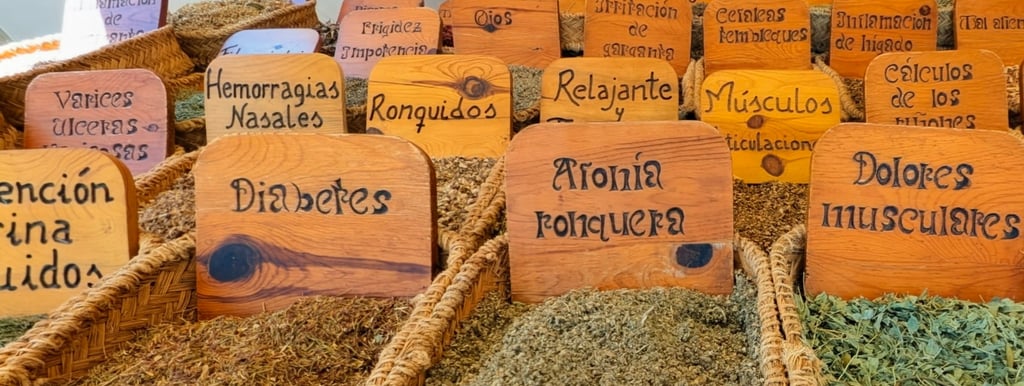

Alfonso VI, known to many as el Bravo, wasn’t a spoilt aristocrat, indulgent and detached from the struggles of his people; far from it. He is credited with confirming laws originally formulated by Fernán González around 940. These laws provided incentives to turn a difficult and desolate area into a developing community, and in return, the community helped to protect and secure the borders of Christian Spain.
At the time Alfonso VI confirmed the fuero, Sepúlveda was situated above the Río Duero. It was a volatile border. Christians and Muslims clashed like angry neighbours bickering over a property line. In order to prevent enemies from advancing and tapping into fertile land, the crown needed settlers on the northern side, and it needed them fast.


Spain's Greatest Hits: Exhibit A, B, and C
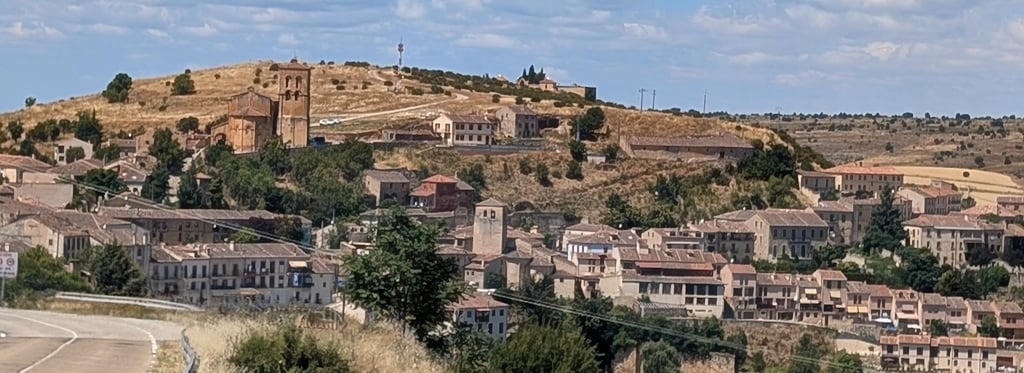

From Medieval Badass to Modern Mess
To attract settlers, the crown gave away free land, waived taxes, granted local self-rule, and even protected outlaws. Alfonso VI created the Fuero de Sepúlveda as a special economic zone. It offered legal and economic privileges to attract settlers and helped to secure a key but unstable area.
Once Upon a Time, Politicians Actually Did Shit
When Dead Kings Have More Honor Than Living Politicians
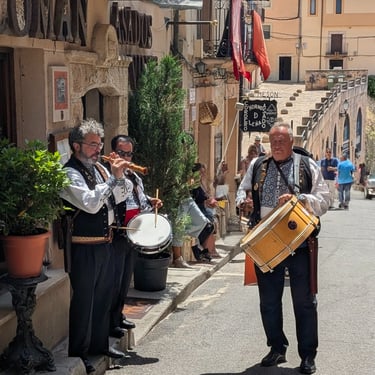

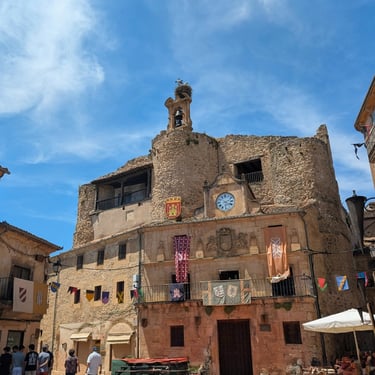
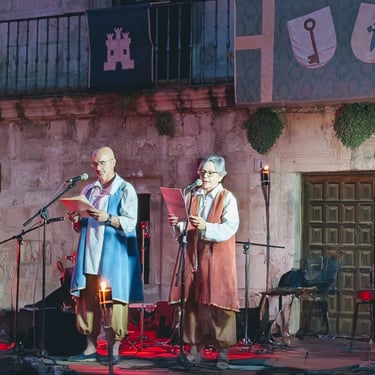
© 2025. All rights reserved.
AI Disclosure: This site uses AI-generated placeholders and AI-assisted editorial tools. View our Transparency Policy
